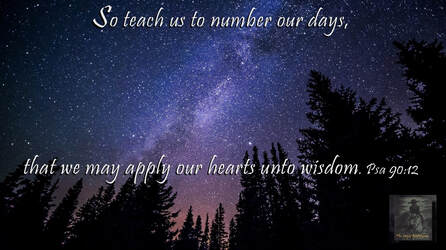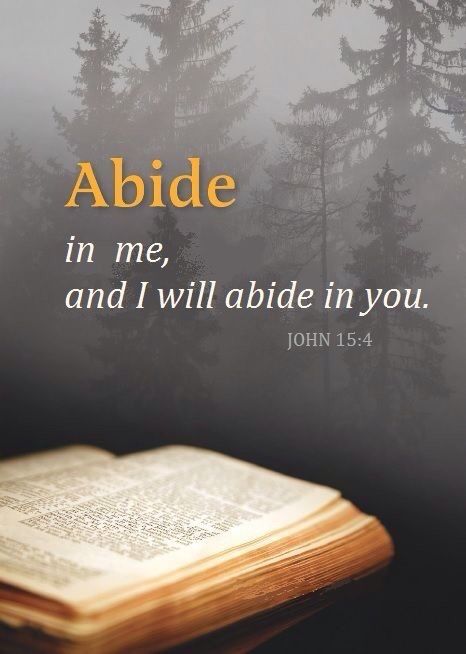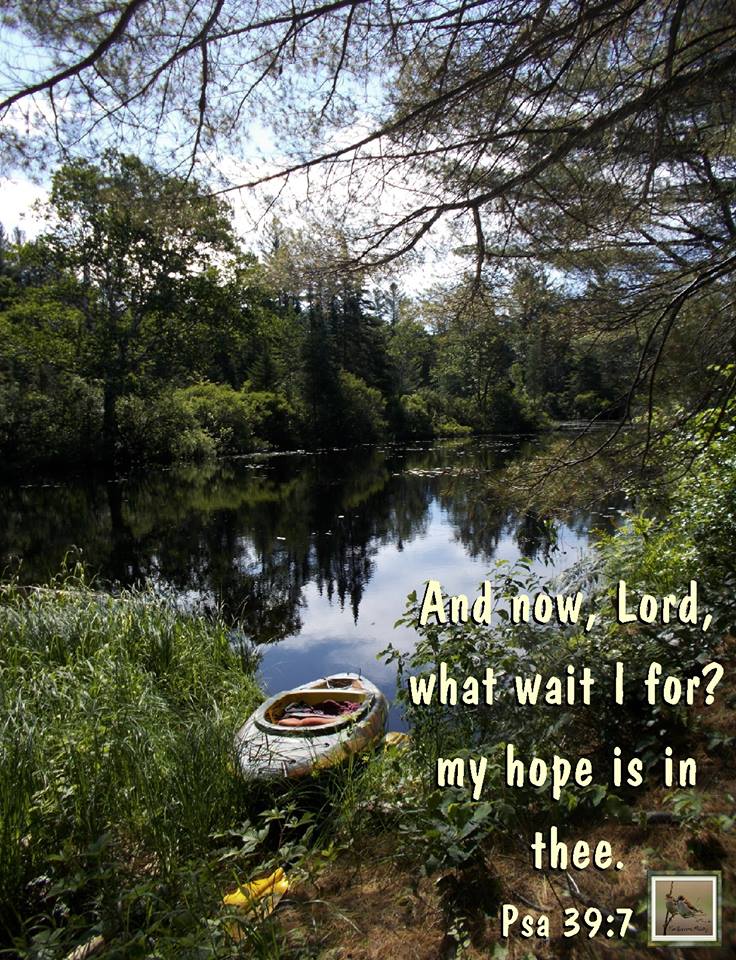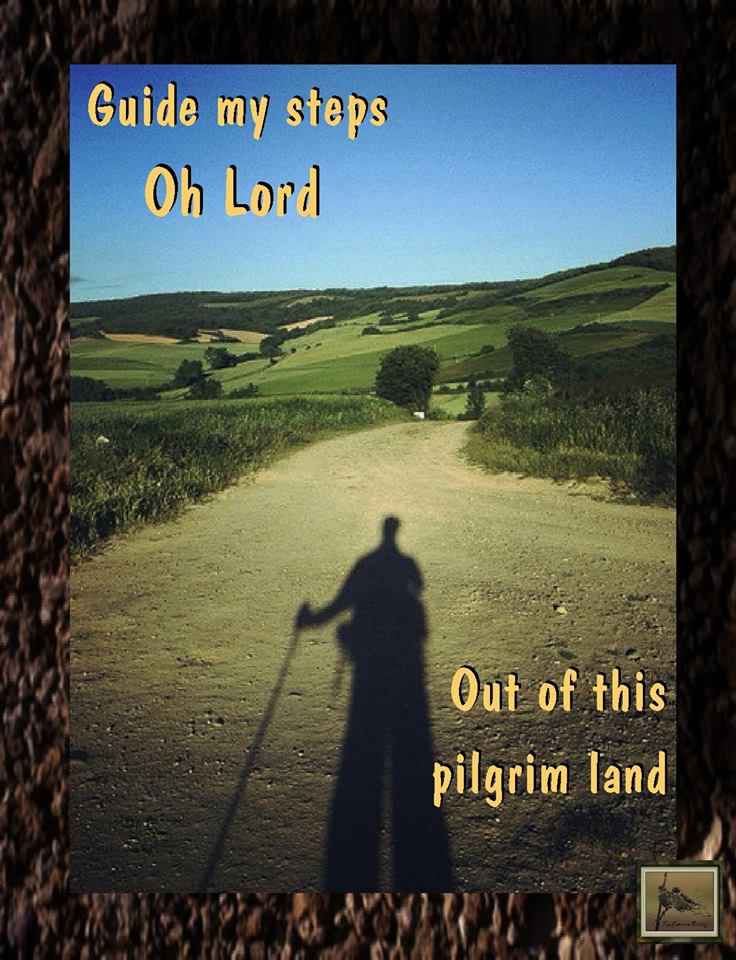Thou hast set our iniquities before thee, our secret sins in the light of thy countenance. For all our days are passed away in thy wrath: we spend our years as a tale that is told. The days of our years are threescore years and ten; and if by reason of strength they be fourscore years, yet is their strength labour and sorrow; for it is soon cut off, and we fly away. Who knoweth the power of thine anger? even according to thy fear, so is thy wrath. So teach us to number our days, that we may
apply our hearts unto wisdom. Psa 90:8-12
Numbering Our Days
apply our hearts unto wisdom. Psa 90:8-12
Numbering Our Days
This is a psalm of life and death, and one of the finest in the whole Bible. The comparisons made between the frailty and brevity of human life and the omnipotence and eternity of God are very striking. But a right use of the sense of mortality is a priceless blessing. We must all be accountants and arithmeticians in the best sense. Like the wise merchants we must frequently take stock in order to see where we stand. And we must also number our nights, with their blessings of rest and repose and renewal, for human life is incomplete without the night as well as the day.
I. Every man must come to his last day. We are born to die, and we die daily. Our home is not here, but yonder.
II. Man has a set time in which to live. Job speaks of certain bounds which man cannot pass. His life is fitted within certain boundaries by Divine Providence.
III. Man’s life on earth is comparatively short. We are asked to number our days, and not our years or months or weeks. We must live a day at a time.
IV. Man is dangerously apt to forget this numbering. He allows the days to slip away unnoticed. He counts his oxen and sheep, but not his days. He numbers other men’s days, but not his own. As Sir Thomas Smith said some months before his death, “It is a great pity men know not to what end they are born into the world until they are ready to go out of it.”
V. The nature of the numbering advocated by the psalmist. “Teach us to number our days, that we may apply our hearts unto wisdom.” We cannot number our days rightly without the Lord as our Teacher. We must go in for numeration under Divine guidance. It is not mathematical but moral counting—a numbering that brings glory to God. The chief end of man is to seek wisdom—not riches, or worldly honours, or sinful pleasures—but wisdom and not the wisdom of the world, but that of God. We have emphasized the truth of man’s mortality, let us also emphasize his immortality. (J. O. Davies.)
Divine teaching:
I. Who is it that teaches? It is God Himself. The mere record, as contained in the world which we see, or in the written Word which we read or hear, is not of itself sufficient. It is the letter, not the life: it cannot of itself convey a saving knowledge of the truths, of which it is nevertheless the chosen depository. Christ must be revealed in us as well as to us ere we can know Him as we ought. It was in Him, as the apostle tells the Galatians, that God was pleased to “reveal Himself.”
II. How does God teach? In many ways. By parents, ministers, friends. Also by outward objects—churchyard, storm, epidemic, etc.
III. The end of God’s teaching. “That we may apply our hearts unto wisdom.” Do you find this a hard lesson? The Israelites found it so, and their stiff-neckedness is written in an enduring record for your learning. The old world found it so; for they were “eating and drinking,” etc. The foolish virgins found it so. Their lamps were gone out, they themselves were slumbering, when the bridegroom came and the door was shut. Are you wiser? Have you profited by these warnings? Have you been “taught”? Are you numbering your days with a consciousness of the relative difference between time and eternity? But what is wisdom? That is the practical question which so many never ask, though it concern them so vitally to learn the lesson; that is the question, too, which so many ask, but not of Him who alone can give them the true answer. What, for instance, did Moses himself esteem wisdom to be? Not all the learning of the Egyptians with which he was conversant, for he renounced it all, esteeming the reproach of Christ better than all the riches of Egypt. And what is Job’s definition of wisdom (Job_28:28; 1Co_3:19). What did the great apostle pronounce is not to be, after he had ceased to sit as Saul of Tarsus at the feet of Gamaliel? And what does he say it is? First, the receiving of Christ by us as sinners; secondly, the adorning of the doctrine in our lives.
(Bp. Sumner.)
I. Every man must come to his last day. We are born to die, and we die daily. Our home is not here, but yonder.
II. Man has a set time in which to live. Job speaks of certain bounds which man cannot pass. His life is fitted within certain boundaries by Divine Providence.
III. Man’s life on earth is comparatively short. We are asked to number our days, and not our years or months or weeks. We must live a day at a time.
IV. Man is dangerously apt to forget this numbering. He allows the days to slip away unnoticed. He counts his oxen and sheep, but not his days. He numbers other men’s days, but not his own. As Sir Thomas Smith said some months before his death, “It is a great pity men know not to what end they are born into the world until they are ready to go out of it.”
V. The nature of the numbering advocated by the psalmist. “Teach us to number our days, that we may apply our hearts unto wisdom.” We cannot number our days rightly without the Lord as our Teacher. We must go in for numeration under Divine guidance. It is not mathematical but moral counting—a numbering that brings glory to God. The chief end of man is to seek wisdom—not riches, or worldly honours, or sinful pleasures—but wisdom and not the wisdom of the world, but that of God. We have emphasized the truth of man’s mortality, let us also emphasize his immortality. (J. O. Davies.)
Divine teaching:
I. Who is it that teaches? It is God Himself. The mere record, as contained in the world which we see, or in the written Word which we read or hear, is not of itself sufficient. It is the letter, not the life: it cannot of itself convey a saving knowledge of the truths, of which it is nevertheless the chosen depository. Christ must be revealed in us as well as to us ere we can know Him as we ought. It was in Him, as the apostle tells the Galatians, that God was pleased to “reveal Himself.”
II. How does God teach? In many ways. By parents, ministers, friends. Also by outward objects—churchyard, storm, epidemic, etc.
III. The end of God’s teaching. “That we may apply our hearts unto wisdom.” Do you find this a hard lesson? The Israelites found it so, and their stiff-neckedness is written in an enduring record for your learning. The old world found it so; for they were “eating and drinking,” etc. The foolish virgins found it so. Their lamps were gone out, they themselves were slumbering, when the bridegroom came and the door was shut. Are you wiser? Have you profited by these warnings? Have you been “taught”? Are you numbering your days with a consciousness of the relative difference between time and eternity? But what is wisdom? That is the practical question which so many never ask, though it concern them so vitally to learn the lesson; that is the question, too, which so many ask, but not of Him who alone can give them the true answer. What, for instance, did Moses himself esteem wisdom to be? Not all the learning of the Egyptians with which he was conversant, for he renounced it all, esteeming the reproach of Christ better than all the riches of Egypt. And what is Job’s definition of wisdom (Job_28:28; 1Co_3:19). What did the great apostle pronounce is not to be, after he had ceased to sit as Saul of Tarsus at the feet of Gamaliel? And what does he say it is? First, the receiving of Christ by us as sinners; secondly, the adorning of the doctrine in our lives.
(Bp. Sumner.)
Apply Our Hearts to Wisdom
“So teach us to number our days.” Instruct us to set store by time, mourning for that time past wherein we have wrought the will of the flesh, using diligently the time present, which is the accepted hour and the day of salvation, and reckoning the time which lieth in the future to be too uncertain to allow us safely to delay any gracious work or prayer. Numeration is a child's exercise in arithmetic, but In order to number their days aright the best of men need the Lord's teaching. We are more anxious to count the stars than our days, and yet the latter is by far more practical. “That we may apply our hearts unto wisdom.” Men are led by reflections upon the brevity of time to give their earnest attention to eternal things; they become humble as they look into the grave which is so soon to be their bed, their passions cool in the presence of mortality, and they yield themselves up to the dictates of unerring wisdom; but this is only the case when the Lord himself is the teacher; he alone can teach to real and lasting profit. Thus Moses prayed that the dispensations of justice might be sanctified in mercy. “The law is our schoolmaster to bring us to Christ,” when the Lord himself speaks by the law. It is most meet that the heart which will so soon cease to beat should, while it moves, be regulated by wisdom's hand. A short life should be wisely spent. We have not enough time at our disposal to justify us in misspending a single quarter of an hour. Neither are we sure of enough of life to justify us in procrastinating for a moment. If we were wise in heart we should see this, but mere head wisdom will not guide us aright.
(Charles Haddon Spurgeon-Treasury of David)
Final summary:
My only addition to what is said in the above commentaries is-they teach me to seriously consider the shortness and uncertainty of life. When I stand in the night, and look up at a sky filled with the stars of heaven, made by the same Creator who made me, it causes me to reflect on how brief my life is, and how small. My first and most important focus needs to be to acquaint myself with Him, and learn as much as possible here, to know Him as much as I can, in order to be equipped to live and reign with Him in heaven, when the day of my death comes. The last breath here, is the first step on the streets of heaven there. Eternity there is the goal, and that I may hear from the throne "Welcome Home".
(Charles Haddon Spurgeon-Treasury of David)
Final summary:
My only addition to what is said in the above commentaries is-they teach me to seriously consider the shortness and uncertainty of life. When I stand in the night, and look up at a sky filled with the stars of heaven, made by the same Creator who made me, it causes me to reflect on how brief my life is, and how small. My first and most important focus needs to be to acquaint myself with Him, and learn as much as possible here, to know Him as much as I can, in order to be equipped to live and reign with Him in heaven, when the day of my death comes. The last breath here, is the first step on the streets of heaven there. Eternity there is the goal, and that I may hear from the throne "Welcome Home".








